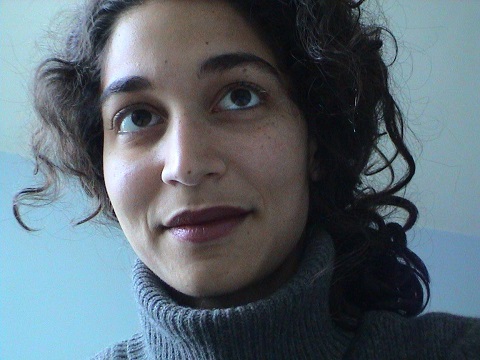Cool Job: Film Subtitler
Anne Appathurai (BA 1996 Victoria, MA 1999) is a freelance translator in Paris. She’s worked in the worlds of music (“everything from websites for music publishers to technical descriptions of scores”) and art (“the stuff you read on the wall at exhibits”), but perhaps her most interesting work is turning French screenplays into English and creating subtitles for movies for English-speaking audiences worldwide.
You grew up in an Anglo world in Toronto, but to do your work you have to be totally comfortable in French and English. How did that happen?
My parents put me in a French-immersion nursery school. I don’t remember a time when the language wasn’t part of my life. In my teens we lived in France for a year and I fell in love with the country; when you’re 15, everything is exalted. At U of T, I studied French language and literature. I knew I wanted to end up in Paris. I moved here in 1999.
Translating screenplays and subtitling require not only a command of dictionary words but familiarity with slang and profanity, and idioms. Besides what’s in your head, how do you verify that a word or expression is correct?
I search online, of course; language forums can offer a wealth of suggestions – although not always good ones. And I still go back to my print thesaurus, which is usually better than anything I find on the internet. For help with a military action scene in one movie I called my brother (James Appathurai, BA 1991 New), who works for NATO, and had him consult his military guys.
What else do you have to do to maintain the nuances of the script?
You really have to know the whole culture, and appreciate context and the characters. When I was subtitling the Jacques Doillon film Un enfant de toi, the girl tells the guy something that translates literally as “You’re a guy who’s always cold and wears sweaters all year long.” The meaning underneath is that he’s super-cautious. I couldn’t fit anything that long into a subtitle so I had her say “You’ve always had cold feet.”
Space limits are always hanging over your head.
You never translate word for word; you compress, you distill, because we’re generally limited to 40 characters per line, including spaces between words.
That’s much less than a tweet!
That’s why the work is constant judgment calls.
Do you translate scripts for dubbing?
I’ve never done it. Philosophically, I don’t like movies that have been dubbed. In acting, voice is a huge part of the art. Marcel Pagnol used to spend a lot of time in the sound truck just listening to the actors’ voices before deciding whether a scene had to be redone or was in the can. Preserving the dialogue is so important. I can’t imagine any director I’ve worked with opting to release a dubbed film.
It can be appealing to get into a new subject with each assignment. But have you done any jobs that explored familiar territory?
I translated the screenplay for Eclipse, a French digital-age spy thriller that takes place in Toronto and will be released next year, starring Sophie Marceau. It was fascinating seeing Toronto through someone else’s eyes, and translating a story that takes place in all these familiar parts of the city: High Park, King Street, a motel on the 401. It was like writing the biography of a close friend.
Recent Posts
For Greener Buildings, We Need to Rethink How We Construct Them
To meet its pledge to be carbon neutral by 2050, Canada needs to cut emissions from the construction industry. Architecture prof Kelly Doran has ideas
U of T’s 197th Birthday Quiz
Test your knowledge of all things U of T in honour of the university’s 197th anniversary on March 15!
Are Cold Plunges Good for You?
Research suggests they are, in three ways




